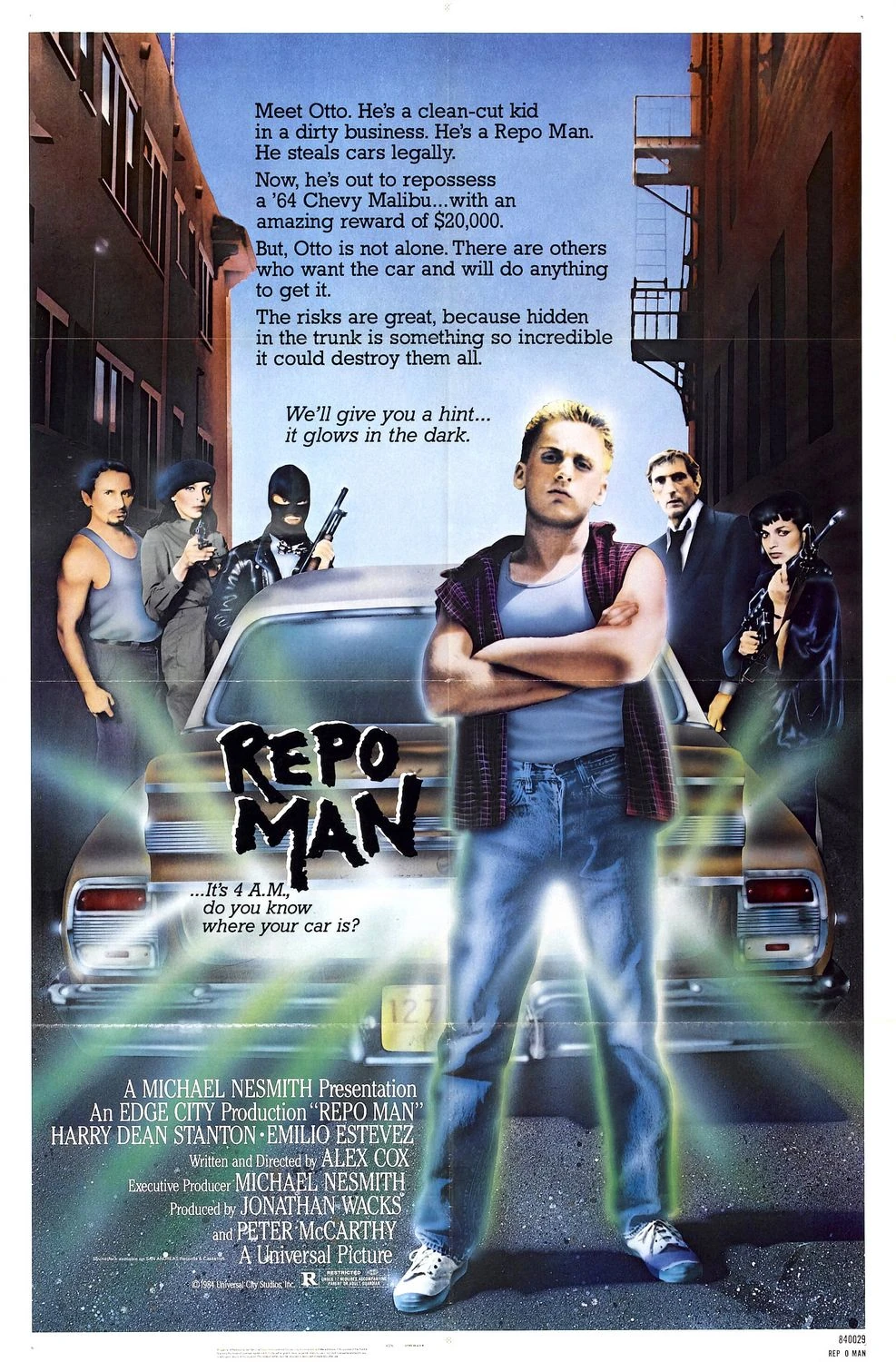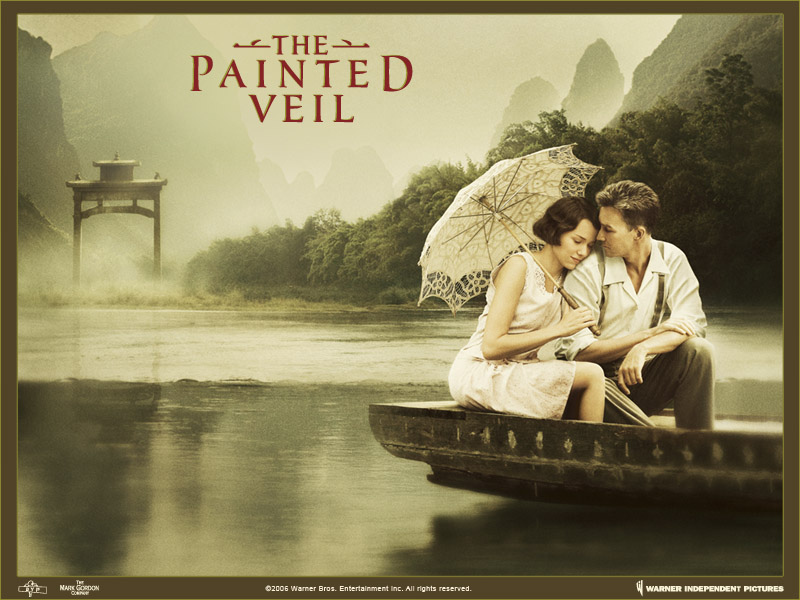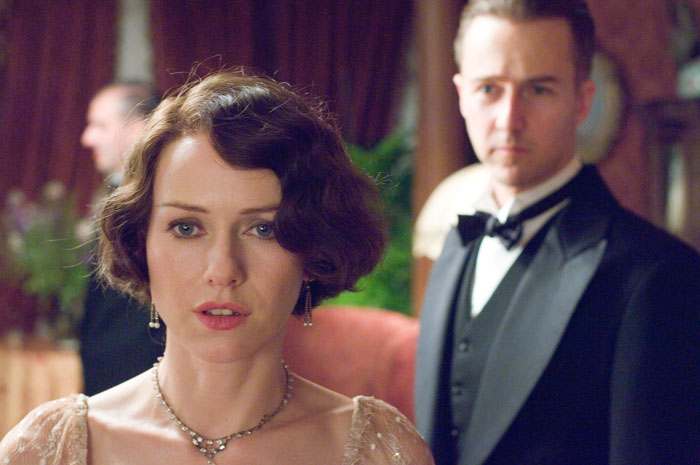 |
| So you think you've had a stressful promotion interview or two in your day? They're nothing compared to what Nikolai goes through in the ultra-ruthless world of the Russian mob. |
Director: David Cronenberg
First time I had watched this one since it was out in theaters. Still a really tight, harrowing piece of crime cinema, though not one that offers viewers any convenient answers about the problems of deep-seeded and systemic criminality and violence.
The story takes place in London, where local nurse Anna (Naomi Watts) has to assist in an emergency birth of a child born by an abused 15-year old girl from Russia.The mother dies giving birth, but she leaves behind a diary in which she details the horrors of her life in London. Being the child of Russian immigrants, Anna takes the diary to her mother and uncle. As Anna learns more about the men who were responsible for the girl's death, she becomes partially involved in a vicious power struggle within a local sect of the Russian mafia. The man with whom she has the most contact is Nikolai (Viggo Mortensen), a chauffeur to the local mob leader's son Kirill (Vincent Cassel). Nikolai is a quiet but intense and intimidating presence who seems to have far more knowledge and ability than he lets on as a mere driver and sometimes-assistant in the mob's criminal dealings. By interacting with Nikolai and his bosses, Anna unwittingly and rather quickly finds the lives of herself, the newborn baby, and her relatives are all in serious danger.
Eastern Promises was David Cronenberg's next film after 2005's A History of Violence, and the two make for excellent companion pieces. Aside from both starring Viggo Mortensen, both are skilled, unflinching looks at the nature of violence and how it can manifest itself in individuals and cultures. The differences between the two lie mostly in the type of general story and the particular focus of each. The former film looked at one man's deeply buried violent past and nature, while the latter examines a type of violence that runs throughout an entire cultural group and is deeply enough embedded to be woven into other, more accepted traditions and rituals.
In terms of narrative, Eastern Promises uses suspense as a major device, with the lives of Anna, the newborn baby, and Anna's family all at stake as the Russian mob slowly closes in. There is also the element of mystery thrown in, as the Nikolai character is slowly revealed to be more than a stoic, detached chauffeur. These alone make the movie strong enough. Added to all of this, though, is the same bold and brutal depiction of violence which Cronenberg employed in A History of Violence. While I wouldn't say the movie is oozing violence, there are a handful of scenes that are violent, some of them extremely so. And Cronenberg strips away any pretense at glamorizing the brutality. This is an approach which I appreciate in movies such as this, as it drives home the point that nothing that these people are doing should in any way be seen as anything but horrendous. Cinematically, it also adds to the tension of the movie, as we understand the threat that characters like Anna are under.
This movie is one of many that has made me a tremendous fan of Viggo Mortensen, who does a brilliant job here. He and Cronenberg seem to make excellent collaborators, and I hope they can find another story strong enough to pair themselves up again in the future.
 |
| One of the most verbose movie posters I've ever seen. Ironic, given how Otto is not exactly a young man of letters, shall we say. |
Director: Alex Cox
I didn't first see this movie until around 2005, and I enjoyed it. This second viewing confirmed my enjoyment, and it confirmed to me why this movie is still a cult classic.
Emilio Estevez plays Otto, an 18-year old punk rocker who is disgusted by his dull suburban life. He quits his job at a supermarket and is soon taken into the car repossession business by Bud (Harry Dean Stanton), a veteran of the trade. Otto's fellow repo men are all social misfits of one form or another, each with his own bizarre code of independence and rebellion. Otto eventually gets mixed up with a strange maelstrom of activity surrounding a Chevy Malibu housing a radioactive alien in its trunk. Mysterious secret operatives are involved, and Otto's fellow repo men get involved in the bizarre pursuit.
The movie is an oddity that could only have come from the middle of the Reagan-era United States, made all the more odd by the fact that it still holds up as a great cult movie, even in 2017. English writer and director Alex Cox (it's always foreigners who nail the American tale in movies) crafted an oft-times hilarious take on American rebellion in the face of and encroaching popular culture of conformity. Otto is a straight up punk-rocker - a kid who has no idea what he wants but knows that he hates nearly everything about his life and the world around him. When he meets a gaggle of curmudgeonly rebels in the repossession business, their interactions are downright hilarious at times. While all of the repo men are great characters, legend Harry Dean Stanton takes the cake as Bud. Bud is a true, died-in-the-wool libertarian who thinks any real American can and should pull themselves up by their bootstraps, put life in a headlock, and give the middle finger to anyone who thinks otherwise. One of his many gems is his response to Otto pointing out that Russians don't pay for anything: "All free? Free my ass," replies Bud, "What are you, a fuckin' commie? Huh?...Well, you better not be. I don't want no commies in my car...No Christians, either." Kind of says it all, right there, really.
Sure, the story, characters, dialogue, and acting can sometimes be a little frayed around the edges, but those don't overpower the gonzo, in-your-face fun of this movie. With it's rebel attitude and d.i.y. approach to characters and dialogue, it conveys a punk rock perspective that is rarely matched. Interestingly enough, the actual cinematography is high quality, which makes the movie generally pleasing to take in. While it's not a movie I need to watch over and over, it's a great little work of its time that holds up rather well.
They Live (1988)
Director: John Carpenter
Talk about a great premise, with some great moments, dragged down by some questionable elements and a limited budget.
In They Live, Carpenter adapted the Ray Nelson short story "Three O'Clock in the Morning" into a solid cult movie. The tale follows Nada ("Rowdy" Roddy Piper), an out-of-work drifter who comes across a secret resistance movement fighting against an unseen cabal of aliens who use subliminal messaging to keep humanity locked in a state of consumption and laze. Once Nada accidentally gets a hold of specially-made sunglasses which allow him to see the ghoulish aliens, he has to flee and attempt to convince people to join him in resisting their plot.
Like a few other Carpenter movies, They Live is a perfect example of a mediocre movie that would have made a fantastic TV episode of The Twilight Zone. Perhaps with a better budget and a stronger script, it could have been a great 90-minute movie. As it was, though, some sharp editing could have pared it down to a brilliant 50-minute show. There is some great commentary on rampant consumerism driven by economic elites, which is as relevant now as it was at the height of Reagan-era excess. And the science-fiction devices work fairly well, with even the clearly-underbudgeted makeup effects creating the necessary creepiness. And the movie does provide us with a couple of classic one-liners, including the gem "I've come to kick ass and chew bubblegum...and I'm all out of bubblegum."
What keeps the movie from being all it could have been comes down to two things, really. One is several sluggish, filler-type sequences that gobble up far more screen time than necessary. Most egregious is the back alley fistfight between Nada and Frank (played by the ever-solid Keith David). The pro wrestling-style brawl goes on for over five minutes, but it feels like three or four times that. Add in that it is far from essential to the primary plot, and you get a nasty speed bump in the middle of what is occasionally a well-paced movie. The second issue is that the script simply isn't terribly creative or tight. The brilliant premise and basic framework aside, there just aren't many verbal exchanges or expositions that are terribly compelling or memorable. Equally dubious are some of the threads that are meant to tie the story together, which can be frayed in more than one part of the film.
They Live is a fun little slice of 1980s dystopian social commentary, to be sure. It's not much of a time commitment at right around 90 minutes, so it's worth checking out for anyone who enjoys a clever sci-fi premise, even if the technical merits of the movie are lacking in several aspects.


